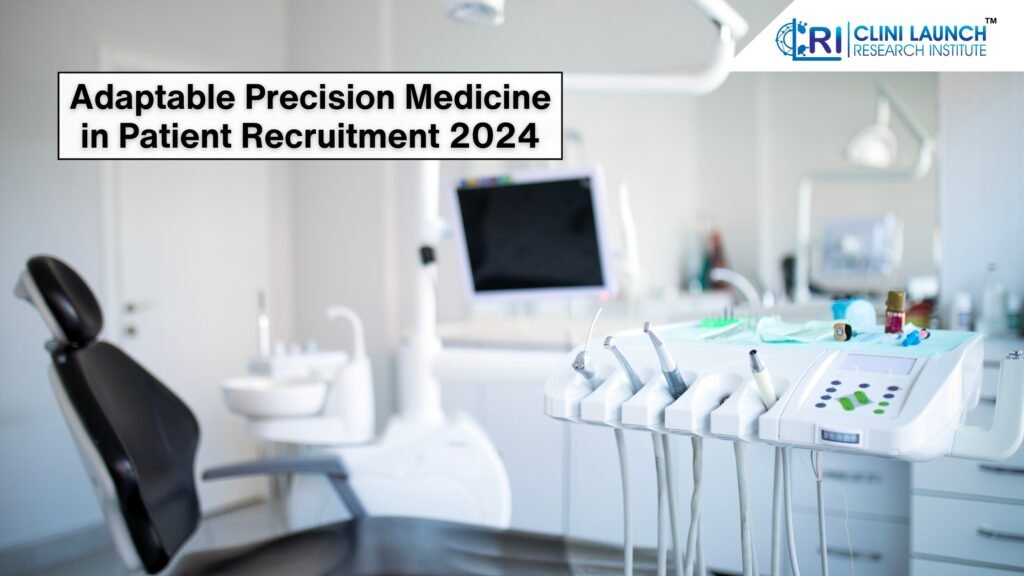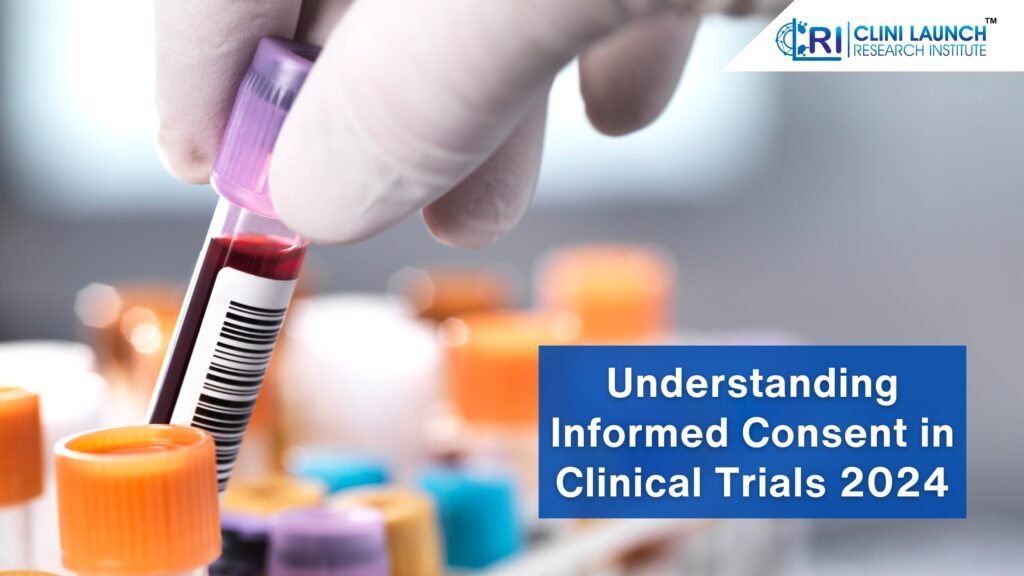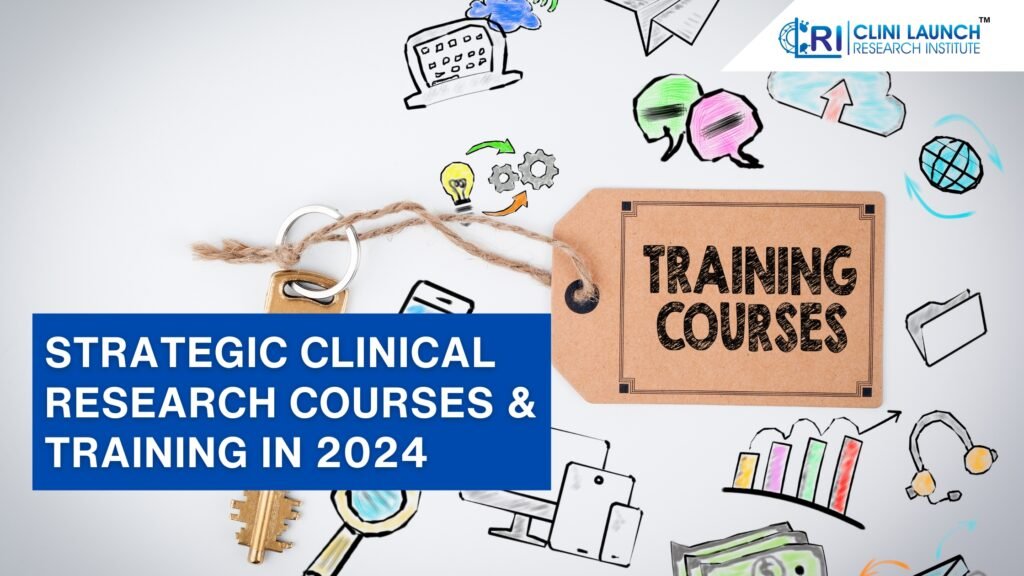Revolutionary Gut Microbiome Clinical Research in 2024

Gut microbiome clinical research is unveiling the underlying workings of our environment, demonstrating how billions of microbes affect our health and sickness. The human body is a complex ecosystem teeming with billions of bacteria, known as the microbiome. This complicated community has a significant impact on human health. The gut microbiota which is a key component of the microbiome, lives in the gastrointestinal system and has a substantial impact on digestion, immunity, and general health. Understanding the role of gut bacteria in health is critical for addressing the impact of the microbiome on disease. Recognizing the importance of these aspects, researchers have stepped up their attention on gut microbiome clinical research. This new discipline aims to better understand the complicated interaction between gut bacteria and human health to create novel disease prevention, diagnostic, and treatment options. A thorough knowledge of the role of gut microbiota in health is critical for furthering clinical studies on gut bacteria and improving patient outcomes. The Gut Microbiome – A Complex Ecosystem The human gut has a huge and complex ecosystem made up of billions of bacteria known as the gut microbiome. This complex community, composed of bacteria, viruses, and fungi, plays a crucial role of gut microbiota in health. The composition and function of the gut microbiome are influenced by a multitude of factors, including diet, antibiotics, host genetics, and environmental exposures. Diet, for example, is a substantial influence on gut microbiota makeup. Consumption of fibre-rich meals encourages the growth of beneficial bacteria, but excessive consumption of processed foods disrupts the microbial equilibrium. While antibiotics are necessary for infection control, they can unintentionally affect the gut microbiome, potentially causing health problems. Host genetics also help to shape the gut microbiome makeup, which influences susceptibility to specific illnesses. Environmental variables, such as pollution and chemical exposure, can also influence the gut’s microbial ecology. Dysbiosis, or an imbalance in the gut microbiome, is linked to various health concerns. This alteration of the microbial environment can cause inflammation, decreased immunological function, and an increased risk of illness. Understanding the causes that cause dysbiosis is critical for finding effective therapies to restore microbial equilibrium. The Gut Microbiome and Human Health – A Reciprocal Relationship The link between the gut microbiota and human health is complicated and bidirectional. A healthy gut microbiota is necessary for proper digestion, food absorption, and immunological function. The gut-brain axis, a communication route between the gastrointestinal system and the brain, emphasizes the gut microbiome’s effect on mood, behavior, and cognitive performance. Emerging evidence reveals that the gut microbiome is important in many areas of human health. It aids in the production of key vitamins, such as vitamin K and B vitamins, which are required for many body activities. Furthermore, the gut microbiome protects against infections by establishing a barrier and boosting the immune system. The gut microbiome has also emerged as a possible biomarker for various medical diseases. Specific microbial patterns have been related to illnesses including inflammatory bowel disease, irritable bowel syndrome, and even obesity. Understanding the role of gut microbiota in health allows researchers to create innovative diagnostic tools and treatment therapies. The Gut Microbiome and Disease – A Mechanistic Understanding A rising amount of data supports the gut microbiome’s role in the etiology of several chronic illnesses. Dysbiosis, or microbial imbalance, has been linked to inflammatory bowel disease, irritable bowel syndrome, type 2 diabetes, obesity, and even some neurological problems. The methods by which the gut microbiome contributes to illness are complex and multifaceted. Inflammation has a significant role in many microbiome-related disorders. Dysbiosis can cause increased intestinal permeability, letting toxic chemicals into the circulation and triggering an inflammatory reaction. Furthermore, the gut microbiota might affect the immune system, contributing to autoimmune disorders. Understanding the molecular relationship between the gut microbiome and illness is critical for establishing successful treatment solutions. Targeting the gut microbiome with therapies like probiotics, prebiotics, and faecal microbiota transplantation has the potential to prevent and treat a wide range of disorders. Biostatistics and Bioinformatics Connection To fully realize the potential of gut microbiome clinical research, a strong grasp of biostatistics or bioinformatics is required. Breaking down the understanding of each professional skill, biostatistics is critical for planning well-powered clinical trials, analyzing complicated data, and reaching relevant findings. Whereas bioinformatics is critical for managing, analyzing, and interpreting large volumes of microbiome data. CliniLaunch provides extensive materials and courses in biostatistics and bioinformatics for candidates interested in upskilling their careers in healthcare. Visit CliniLaunch to learn how these disciplines might benefit your microbiome research. Gut Microbiome Clinical Research – Advancing the Field Gut microbiome clinical research is tremendously evolving to unravel the intricate relationship between the gut microbiota and human health. A variety of approaches, including observational studies, randomized controlled trials (RCTs), and meta-analyzes, are used to explore the impact of the microbiome on disease. While this research provides useful insights, obstacles such as data standardization, sophisticated analysis, and ethical issues remain. Interdisciplinary collaboration is required to overcome these challenges and expedite development. The Future of Gut Microbiome Clinical Research – A Precision Medicine Approach The direction of gut microbiome clinical research speaks to a future of personalized treatment. By studying individual gut microbiomes, researchers hope to find distinct microbial fingerprints linked to various health issues. The precision medicine approach has the potential to transform illness prevention, diagnosis, and therapy. The development of microbiome-based therapeutics such as probiotics and facial microbiota transplantation is gaining traction. However, ongoing research and funding are required to turn these promising possibilities into practical therapeutic applications. Conclusion The gut microbiota has emerged as a key factor influencing human health and illness. Understanding the role of gut microbiota in health is critical for creating effective strategies to mitigate the impact of the microbiome on disease. Gut microbiome clinical research is at the forefront of converting these insights into real-world benefits for patients. Continued funding in clinical studies on gut bacteria is required to realize the microbiome’s full potential for better health outcomes. Consider learning
Comprehensive Gene Function Analysis of Gut Health in 2024

Gene function analysis is a critical tool for unravelling the complexities of the human gut microbiome, a complex ecosystem of microorganisms. This intricate ecosystem of microorganisms, residing within the gastrointestinal tract, plays a pivotal role in digestion, immune function, and overall health. Understanding the gut microbiota is critical for creating effective methods to prevent and cure various illnesses, including inflammatory bowel disease and obesity. Researchers can get useful insights into the processes that underpin microbiome-host interactions by investigating the activities of microbial genes. This information has the potential to revolutionize clinical research by allowing the discovery of new treatment targets and biomarkers. Ultimately, gene function analysis has the potential to affect the future of gut health by offering a better knowledge of the microbiome’s involvement in human physiology and illness. Researchers can use gene function analysis to discover novel therapies to increase human well-being. The Complexity of the Gut Microbiome Through Gene Function Analysis The human gut microbiome is a complex ecosystem containing a wide variety of microorganisms. The microbiome, known for its astonishing variety and dynamic character, plays an important role in human health and disease etiology. The complex interaction between microbial communities and the human host poses substantial obstacles for researchers attempting to understand its activities. Traditional culture-based techniques have limits in obtaining the entire microbial environment, impeding our capacity to completely characterize the gut microbiome and its metabolic potential. To overcome these inadequacies, functional genomics techniques have emerged as critical tools for investigating the genetic makeup and functional capabilities of microbial communities. Gene profiling provides useful insights into microorganisms’ transcriptional activity, offering a dynamic view of microbial behavior in the gut environment. By combining gene expression profiling and genomics techniques, researchers can begin to understand the intricate mechanisms underpinning microbiome-host interactions and their consequences for human health. Potential of the Gut Microbiome Gene function analysis is critical for understanding the unique roles of microbial genes in the gut environment. Researchers can uncover essential participants in many physiological processes and disease states by conducting a rigorous investigation of gene function. Scientists can fully characterize the gut microbiome’s genetic repertoire and transcriptional landscape by using functional genomics such as metagenomics and meta transcriptomics. These techniques, together with gene expression profiling, allow for the identification of genes linked with certain phenotypes and metabolic processes. Rigorous genomic data interpretation is required for converting raw data into useful biological insights. Researchers may build a complete picture of microbial activity and its influence on human health by combining several forms of omics data. Addressing Challenges in Gut Microbiome Research with Gene Function Analysis Despite advances in microbiome research, substantial challenges remain. The sheer complexity of the gut microbiome, along with the constraints of existing research methodologies, calls for innovative approaches. Gene function analysis is a viable approach to tackling these issues by giving a mechanistic knowledge of microbial activity. The combination of functional genomics approaches with gene expression profiling improves our capacity to understand the gut microbiome’s dynamic nature and interactions with the host. To expedite advancement in this discipline, strong data analysis pipelines and collaborative research activities are required. Platforms like CliniLaunch can help with data sharing and cooperation, promoting the development of new therapy techniques and diagnostic tools. Benefits of Gene Function Analysis Gene function analysis is a viable route for developing therapeutic methods that target the gut microbiota. Researchers can uncover new therapeutic targets and build precision medicine techniques by better understanding the functional roles of microbial genes. A thorough knowledge of the microbiome’s role in disease pathogenesis may be obtained by combining functional genomics approaches with gene expression profiling. This knowledge is useful in designing tailored therapies to prevent or slow disease development. For example, by identifying microbial variables linked to inflammatory bowel illness, researchers might investigate the development of microbiome-based therapies. Furthermore, gene function analysis has the potential to improve treatment results by adapting therapeutic tactics to each patient’s unique microbiome makeup. Accelerating Gut Health Research Gene function analysis is set to play a critical role in solving global health issues involving the gut microbiota. Researchers can create novel techniques to address antibiotic resistance, malnutrition, and other gastrointestinal problems by better understanding the complicated connection between microbial populations and human health. Continued investment in functional genomics techniques and gene expression profiling is critical for improving our understanding of the microbiome and its role in human health. Fostering cooperation among academics, physicians, and industry stakeholders is critical for turning scientific findings into practical therapeutic applications. We can use gene function analysis to uncover the microbiome’s full potential to benefit human health and well-being. Concluding Thoughts Gene function analysis is a critical component of current gut microbiome research, giving essential insights into microbial activity and its effects on human health. Researchers can unveil the intricate interplay between the microbiome and the host using functional genomics techniques and gene expression profiling, opening the path for novel therapeutic and preventative treatments. To speed up advancement in this sector, further investment in clinical research and data-driven techniques, such as those provided by CliniLaunch, is required. CliniLaunch is at the forefront of empowering professionals to shape the future with a wide range of upskilling courses. Our comprehensive upskilling programs are designed to equip individuals with the in-depth knowledge and practical skills required to excel in this dynamic field by combining rigorous theoretical instruction with hands-on experience. Our experts provide mentorship and guidance, ensuring that participants develop a strong foundation in their respective learnings. Visit our platform to know all about the courses. Click here. Krishna Talreja Dynamic content marketing professional with expertise in brand storytelling and strategic content creation. Adept at managing diverse content projects, driving engagement, and enhancing brand visibility across multiple platforms.
Endpoint Selection In Clinical Trials: Master The Skill | 2024

The choice of endpoint selection in clinical trials can make or break a drug development. Endpoint selection in clinical trials is the process of identifying specific outcomes or measurements that are utilized to evaluate the efficacy and safety of all new medical interventions. The importance of choosing endpoints cannot be stated more, as they serve as the primary determinants of a trial’s success or failure. A well-designed clinical trial is based on the careful selection of essential endpoints that appropriately represent the desired therapeutic effect. Suboptimal endpoint selection can result in misleading outcomes, lost resources, and delayed medication development. Critical endpoints in medical research are crucial to the success of clinical studies. Researchers may optimize trial design, improve data quality, and eventually hasten the discovery of life-saving therapies by carefully examining critical aspects such as clinical relevance, measurability, and feasibility. Challenges in Endpoint Selection in Clinical Trials The selection of appropriate endpoints is a crucial component in the design and execution of clinical trials. While the significance of choosing endpoints in clinical trials is generally recognized, researchers typically face significant hurdles throughout this essential procedure. These problems can have a substantial influence on the efficiency, dependability, and overall success of clinical research. Defining clinically relevant critical endpoints in medical research that correctly represent an experimental product’s therapeutic advantages while being practical and achievable presents a substantial challenge. The changing nature of medical research, as seen by the incorporation of patient-reported outcomes (PROs) and the rise of digital endpoints, complicates the significance of choosing endpoints. The ramifications of suboptimal endpoint selection can be profound. Inaccurate endpoint selection can result in misleading trial findings, stifling drug development progress and delaying patient access to potentially lifesaving medicines. Furthermore, ineffective endpoint selection might raise trial costs due to operational inefficiencies and the need for further trials to elucidate treatment effects. CliniLaunch, a renowned healthcare upskilling institute, understands the need of understanding endpoint selection in clinical trials for prospective clinical research professionals. Our comprehensive courses provides students with the information and abilities required to manage the complexities of this crucial subject. Understanding the obstacles and best practices in endpoint selection gives our graduates a competitive advantage in the clinical research business. Endpoint Selection: A Cornerstone of Successful Clinical Trials Effective endpoint selection is paramount for the success of clinical trials. By carefully considering key factors such as clinical relevance, measurability, sensitivity, specificity, and feasibility, researchers can identify critical endpoints that accurately reflect the significance of an intervention. Defining Critical Endpoints The Importance of Multiple Endpoints Tips for Endpoint Selection (The key factors in endpoint selection involved) Considering the above listed key factors in endpoint selection and optimizing endpoint selection in clinical trials, researchers can improve trial efficiency, data quality, and the chance of regulatory acceptance. CliniLaunch provides professional upskilling with the right courses in healthcare to help individuals gain their exposure and understand clinical trial objectives. The Impact of Endpoint Selection on Clinical Trial Success Endpoint selection in clinical trials is an important aspect in determining overall trial outcome. By carefully examining crucial endpoints in medical research, researchers may improve trial design and enhance the possibility of reaching desired results. The significance of choosing endpoints that accurately reflect the therapeutic benefit of an investigational product cannot be overstated. Well-defined endpoints improve data quality, enhance trial efficiency, and strengthen the evidence base for treatment efficacy. Ultimately, optimal endpoint selection accelerates drug development and leads to improved patient outcomes. Shaping the Future of Endpoint Selection The evolving landscape of clinical research demands innovative approaches to endpoint selection. Emerging trends such as the integration of biomarkers, the utilization of digital endpoints, and the incorporation of real-world evidence are reshaping the industry. These advancements offer unprecedented opportunities to refine endpoint selection, enhancing the precision and relevance of clinical trial data. To fully realize the potential of these developments, continued investment in research and development is essential. A deeper understanding of the methodological underpinnings of endpoint selection is imperative to ensure the reliability and validity of clinical trial outcomes. Upskilling healthcare professionals in the nuances of endpoint selection is crucial for driving progress in this area. CliniLaunch, as a leader in healthcare upskilling, is committed to empowering professionals with the knowledge and skills needed to excel in clinical research. Our programs equip individuals with the expertise to navigate the complexities of endpoint selection and contribute to the advancement of medical science. Wish to have a look at our upskilling offerings, click to check out. Krishna Talreja Dynamic content marketing professional with expertise in brand storytelling and strategic content creation. Adept at managing diverse content projects, driving engagement, and enhancing brand visibility across multiple platforms.
Patient-Centric Approaches in Clinical Research – Revolutionizing healthcare

Patient-centric approaches in clinical research are revolutionizing the field, ushering in a new era of healthcare. At CliniLaunch, a leader in upskilling for clinical research, we stand dedicated to using this potential to accelerate medical advancements. The effectiveness of research is sometimes hampered by the constraints of traditional methodologies. A 2017 study published in a trials journal revealed concerningly high dropout rates, that go up all the way up to 30% in clinical trials. A high dropout rate reduces the quality and generalizability of research findings. This is where patient-centric approaches come into the picture. They offer a solution; prioritizing participant needs and perspectives. This shift fosters participant engagement, improves the patient experience, and empowers patients to be active partners in their health journey, ultimately leading to patient empowerment. Today’s blog on patient-centric approaches in clinical research explores how patient-centric approaches address these limitations, paving the way for a brighter future in healthcare. Embracing Patient-Centric Approaches in Clinical Research – Beyond Enrollment and Dropout The main force behind medical advancement, clinical research, occasionally encounters obstacles that reduce its efficacy. There are two major obstacles: At CliniLaunch, a leader in clinical research advancement upskilling, we understand these challenges and their significant impact. Low enrollment lengthens wait times and limits the research’s potential to be applied to a larger population. Elevated rates of dropout pose a danger to the integrity of data, which ultimately impedes the progress of therapies that might enhance patient outcomes and patient experience. The potential consequence? Patients’ actual requirements could not be adequately met by treatments. Conventional techniques frequently do not take a patient-centric approach, which may cause them to miss important elements that affect participant engagement and protocol adherence. This may cause a gulf to form between patients and the research process, which may eventually affect the creation of medications that are actually helpful to patients. Clinical research that prioritizes the needs and preferences of patients presents a novel remedy. These methods put the needs and viewpoints of participants first, encouraging patient empowerment all the way through the study process. This blog explores how patient-centric approaches in clinical research are revolutionizing clinical research, producing stronger data and, eventually, better patient outcomes through therapies. Partnering with patients – Patient-centric approaches at CliniLaunch Patient-centric approaches in clinical research represent a revolutionary shift. They move beyond viewing participants as mere subjects, instead valuing them as active partners in the research journey. This collaborative approach prioritizes participant needs and perspectives, fostering a more positive and empowering research experience. At CliniLaunch, we’re firmly committed to integrating patient-centric approaches throughout all stages of research. We understand that successful research hinges on participant engagement, and we actively implement strategies to achieve this: We recognize that patients lead busy lives. CliniLaunch offers flexible appointment scheduling to accommodate participants’ individual needs, promoting better adherence to research protocols We believe in open and transparent communication. We establish clear communication channels to keep participants informed about the research process and answer any questions they may have. We empower participants through education. We provide comprehensive information about the research study and offer ongoing support throughout their involvement. This commitment to patient-centricity fosters a more positive patient experience, leading to higher participant engagement and lower dropout rates. Ultimately, this translates to more robust and reliable data, paving the way for the development of life-changing treatments. To learn more about how CliniLaunch is revolutionizing clinical research through patient-centric approaches, visit our website by clicking here. Why Patient-Centric Approaches Matter – Some Key Benefits? Patient-centric approaches in clinical research unlock a lot of benefits for both patients and the research itself: Researchers may create more pertinent and efficient study procedures by prioritizing participant feedback and patient requirements. Higher-quality data may result from this, which may eventually lead to more fruitful clinical studies that provide patients with better therapies. The patient’s experience is given priority in patient-centric approaches. This might entail having access to trial outcomes, having open communication channels throughout the study process, and having flexible scheduling alternatives. These elements help participants have a more fulfilling and powerful experience. Patients are frequently treated as passive subjects in traditional research. Patient-centric approaches aggressively solicit feedback from participants at every stage of the study. Patients are therefore given the opportunity to actively participate in directing research that directly affects their health and well-being. Patient-centric approaches are revolutionizing clinical research by placing the needs of the patient first throughout the whole research process. This change promotes a more cooperative atmosphere, which eventually results in better therapies and a more promising future for healthcare. Next Steps – A Brighter Future for Research The potential future impact of patient-centric approaches in clinical research is truly transformative. Patient-centricity techniques are expected to be used more widely in clinical trials as their advantages become more apparent. This will result in a more varied patient group being represented in research and having their perspectives heard, creating a more inclusive environment. Innovations in technology provide fascinating opportunities for patient-centered research. To improve patient experience and participant engagement, telemedicine consultations, online platforms for communication, and mobile apps for data collecting can be implemented. Technological advancements hold exciting possibilities for patient-centric research. Mobile apps for data collection, telemedicine consultations, and online platforms for communication can further enhance participant engagement and provide a more convenient patient experience. CliniLaunch, at the forefront of clinical research upskilling, is actively exploring these future directions for working professionals and individuals. We believe that by integrating patient-centric approaches and harnessing the power of technology, we can help revolutionize research and accelerate breakthroughs with the right upskilling. Conclusion – A brighter Future for Healthcare A paradigm change in clinical research is represented by patient-centric approaches in clinical research, which put the patient at the center of medical discoveries. Through the prioritization of participant demands and the promotion of collaboration, these techniques yield several advantages. Increased patient empowerment and participant engagement result in a more positive and empowering journey for the patients. Stronger data and successful trials support research, hastening
Adequate Placebo-Controlled Trials Clinical Research in 2024

Clinical research is the backbone of healthcare’s ongoing progress. In this field, placebo-controlled trials clinical research have long been recognized as the gold standard. These painstakingly planned trials provide a reliable way to assess the effectiveness and safety of cutting-edge medications and therapeutic approaches. Nonetheless, there are several complications associated with the validity of this technique. This paper explores the complexities of placebo-controlled Trials in clinical research, including their advantages, moral issues, and difficulties in recruiting and involving participants engagement. Demystifying Placebo-Controlled Trials Clinical Research Clinical research is built on the foundation of placebo-controlled studies. They assess a novel treatment’s efficacy against a placebo-controlled trials in clinical research, which is an inert chemical intended to look like the active ingredient but has no medicinal value. By accounting for the placebo effect – a phenomenon in which patients get well just because they think they are getting a favorable therapy – this strategy aids in separating the real effect of the new medication. Saline solutions, sugar tablets, or inert compounds that imitate the active treatment’s form can all be used as placebos. Researchers can ascertain the actual effectiveness of the novel intervention by contrasting patient outcomes in both groups (those getting the active therapy and those receiving a placebo). Why Placebo-Controlled Trials Clinical Research Matter? Placebo-controlled trials clinical research are essential for guaranteeing that novel medical discoveries are legitimate. By focusing on the real effect of a medicine or treatment, these studies provide a definitive standard for evaluating its efficacy. Random assignments are made to participants to receive the investigational medication or a placebo, which is a medicine that has no medicinal value. Researchers can successfully account for the placebo effect – a condition in which patients feel better only by getting a therapy, even if it is ineffective – by comparing the results across the groups. By removing the impact of outside variables and psychological effects, this exacting approach enables researchers to determine the drug’s actual effectiveness. The success stories of numerous life-saving medications, like cholesterol-lowering statins and HIV antiviral drugs, are testaments to the power of placebo-controlled trials in clinical research. Placebo-Controlled Trials Clinical Research: Ethical considerations and Participant Engagement Researchers can successfully account for the placebo effect – a condition in which patients feel better only by getting a therapy, even if it is ineffective – by comparing the results across the groups. By removing the impact of outside variables and psychological effects, this exacting approach enables researchers to determine the drug’s actual effectiveness. The success stories of numerous life-saving medications, like cholesterol-lowering statins and HIV antiviral drugs, are testaments to the power of placebo-controlled trials in clinical research. Placebo-Controlled Trials Clinical Research: Recruitment Challenges Despite its benefits, recruiting participants for placebo-controlled trials can be challenging. Potential volunteers are discouraged by the very structure of these trials, as some get a placebo instead of the actual medication. People are inherently drawn to well-established advantages, so the idea of taking an inert ingredient is less enticing. Researchers are employing creative approaches to get beyond these obstacles. Outreach programs that are specifically designed to target a given patient demographic can address problems and increase awareness. Ensuring better representation and generalizability of outcomes is ensured by diversifying participant pools. Using internet channels for recruiting can also increase reach and expedite the enrollment process. The Future of Placebo-Controlled Trials It is no longer certain where placebo-controlled studies will end up. Alternative research approaches that might complement or even replace them in specific circumstances are being actively investigated by researchers. These developments center on utilizing data’s power. Large-scale datasets might be analyzed using sophisticated statistical models to isolate the effects of novel therapies, hence eliminating the requirement for a placebo arm in some clinical studies. Researchers are also investigating the application of actual patient data that is gathered during routine care. This “real-world evidence” may be a useful supplement to the controlled setting of placebo-controlled studies, offering important insights into the efficacy and safety of novel therapies in a more realistic context. These developing approaches have the potential to expedite the creation of life-saving therapies, simplify the research procedure, and resolve some of the moral dilemmas related to placebos. Unveiling the efficacy and ethics Placebo-controlled trials are becoming the bedrock of clinical research, meticulously evaluating new treatments time-to-time. While clearly important, their function is not without complications. This article delves into the benefits of placebo-controlled studies, ethical issues, and participant recruiting problems. To Sum Up Placebo-controlled studies remain important, but continual examination of ethical concerns and recruiting obstacles is required. Research aims for alternative approaches while adhering to ethical norms in clinical research. CliniLaunch empowers careers in clinical research offering a comprehensive suite of courses, including one dedicated to placebo-controlled trials. Explore our upskilling offerings at https://clinilaunchresearch.in and join us in advancing healthcare.
Adaptable Precision Medicine in Patient Recruitment 2024

Technology is having a big influence on healthcare, and it will have much more of an impact on the advancement of precision medicine. Medical advancement is fueled by clinical trials. They evaluate novel medications and treatments, opening the door for advancements in medical science. The quickly developing discipline of precision medicine is changing the way we approach these studies. It has enormous potential to change clinical research by allowing for the customization of therapy for specific individuals. Traditional recruiting techniques, however, frequently encounter difficulties due to things like wide inclusion criteria and poor patient comprehension. This eventually hampered the development of personalized healthcare by causing a delay in enrollment and perhaps skewing outcomes. We at CliniLaunch are dedicated to upskilling candidates with precision medicine to influence the future of clinical trials and recognize the vital role that effective recruiting plays. Traditional Clinical Trial Recruitment The advancement of medicine is fueled by clinical trials, which open the door to novel therapies and improved patient care. Nonetheless, there are several drawbacks to the conventional method of patient recruiting. Using broad inclusion criteria might result in the enrollment of individuals who may not be the greatest candidates for the treatment under investigation. This may result in a waste of resources and ambiguous findings. Furthermore, patients may find it difficult to comprehend the complexities of clinical trial processes as well as the associated risks and rewards. This ambiguity may deter people from participating and cause them to leave trials early. Lastly, conventional hiring practices are frequently costly and time-consuming. These difficulties are acknowledged by CliniLaunch, an extensive source of clinical trial information. Thankfully, precision medicine presents a potent means of transforming patient acquisition and launching a new phase of successful and productive clinical research. Precision Medicine – A Personalized Approach Optimizing clinical trial enrollment using personalized approach is a novel strategy, and CliniLaunch is dedicated to being at the forefront of these developments. Identifying individuals with certain biomarkers through genetic and molecular profiling can target recruiting efforts towards those who are more likely to react to the medication under investigation. Visit our website to learn more about their commitment to shaping the future of healthcare. Transforming Clinical Trials to Advancement Precision Medicine recruitment offers a vast multitude of benefits for clinical trials and ultimately, for patients with improved patient care. CliniLaunch, a leader in clinical trial upskilling, is at the forefront of implementing these strategies. Take a glimpse of how personalized medicine is transforming clinical research: Enrolling patients with the most relevant genetic composition and underlying illnesses boosts clinical trial success rates through personalized medicine recruiting. This enables researchers to use smaller participant pools to obtain statistically meaningful results and more precise data collection. A better knowledge of the relationship between individual genetics and illness is made possible by the data gathered from patient recruitment. This encourages the creation of more individualized healthcare strategies, which eventually leads to better patient care and treatment results. Significant cost reductions result from smaller, more relevant participant groups and faster study completion. Then, these funds may be used to create a greater variety of medicines for different ailments. A New Era of Clinical Research Personalized medicine holds immense potential to transform clinical trials into a more efficient and personalized experience for all participants: Clinical trials may be created in the future with the needs of the individual patient in mind, providing participants with a more tailored and maybe more advantageous experience. A greater awareness of the research and an increased likelihood of benefiting from it may result in a notable increase in patient participation in clinical trials. This would hasten the advancement of research and eventually help people with a greater variety of ailments. Personalized medicine will expedite the discovery of novel and effective therapies for a wider spectrum of ailments by enabling faster and more successful clinical research. Better patient outcomes and a more promising future for healthcare will result from this. Revolutionizing Clinical Trials Clinical trials might undergo even more transformation thanks to precision medicine. Envision medical research that are tailored to the specific requirements of each patient, utilizing genetic data to provide a more customized outcome. Patients’ willingness to volunteer may increase dramatically because of this customized strategy since they will be able to clearly understand how their involvement will help them. In the end, therapeutic restructuring is expected to accelerate with personalized medicine. Trials that move more quickly and effectively can lead to the faster development of medications that can change people’s lives, which will improve patient outcomes for future generations. Conclusion A better future for healthcare is being made possible by the fundamental transformation of clinical trial recruiting brought about by precision medicine. This focused strategy promotes the growth of personalized healthcare while also increasing the effectiveness of trials. It has the potential to lead to ground-breaking therapeutic alteration by revealing the mysteries surrounding the connection between a gene and a disease. It will take sustained cooperation between researchers, physicians, and patients to reach this promise. Together, we can realize personalized medicine’s full promise and usher in a new age of effective clinical trials and individualized care for everybody. Krishna Talreja Content Strategist Dynamic content marketing professional with expertise in brand storytelling and strategic content creation. Adept at managing diverse content projects, driving engagement, and enhancing brand visibility across multiple platforms.
Patient recruitment in clinical Research – A comprehensive guide

Recruiting the right participants is fundamental to the success of any clinical trial. Studies show that a staggering 80% of clinical trials experience delays due to slow enrollment. This significantly impacts timelines, research progress, and ultimately, the development of potentially life-saving treatments. Imagine the magnitude of impact if new drugs and therapies were delayed by months or even years due to difficulties finding suitable participants. One can only think of the unthinkable at this moment. This article deals with being a comprehensive guide for navigating the often-challenging landscape of patient recruitment in clinical research. We go ahead and explore effective enrollment strategies, discuss methods to enhance participant engagement, and delve into the future trends shaping this crucial aspect of clinical trials. Overcoming the enrollment hurdle – Effective strategies Fortunately, there are a few patient recruitment strategies that can significantly boost enrollment rates. Here are some critical factors to consider while moving beyond old practices and implementing fresh solutions: Social media platforms, when utilized responsibly and ethically, can be powerful tools for patient recruitment. Targeted ad campaigns and collaborations with patient influencers can raise awareness and connect with relevant communities. Imagine a short, informative video on a specific disease shared by a patient advocate – this can spark interest and spread awareness about a relevant clinical trial. Telehealth technology offers a convenient and accessible solution for initial screening and onboarding processes. Imagine potential participants completing pre-screening questionnaires or attending virtual consultations from the comfort of their homes. This removes geographical barriers and streamlines the enrollment process. One size rarely fits all when it comes to participant motivation. Offering a menu of personalized incentives, such as travel reimbursements, childcare assistance, or educational resources, can cater to individual needs and address potential barriers to participation. Imagine offering flexible scheduling options for working individuals or providing transportation assistance for those with mobility limitations. AI algorithms analyze vast amounts of data to effectively identify potential participants who meet the trial criteria as per the rules and regulations set. A sophisticated AI system scouring electronic health records finds suitable candidates, saving researchers a lot of time and resources. Building trust with potential participants is very important and crucial. Hosting community forums, workshops, or educational events helps researchers to address existing concerns directly and build a rapport with the target audiences. An informative session held at a local community center, fostering open communication and dispelling any myths surrounding the trial goes a long way in clearing myths and wrong facts. Enhancing participant engagement Beyond the initial enrollment process, promoting participant engagement is key to retaining participants throughout the clinical trial. Here are some adequate methods to keep participants invested more in the research: Benefits of successful recruitment Investing in good patient recruitment in clinical research has various benefits for both the research and potential participants: By overcoming recruitment challenges and achieving successful enrollment, clinical research may reach its full potential, resulting in faster breakthroughs, better therapies, and, ultimately, a healthier future for all. The evolving landscape of patient recruitment in clinical research The environment of patient recruitment in clinical research is continually changing, thanks to technological improvements and a rising emphasis on participant-centeredness. Here are several interesting upcoming developments that have huge promise for overcoming recruiting issues and increasing participant engagement: By adopting these novel techniques, researchers may overcome the limitations of traditional patient recruitment in clinical research, paving the way for a more inclusive and efficient research environment. Conclusion – The future of patient recruitment in clinical research The field of patient recruiting in clinical research is rife with fascinating opportunities. Researchers may revolutionize the clinical trial process by using technology, implementing participant engagement tactics, and prioritizing enrollment strategies that appeal to different groups. Telehealth integration, decentralized trials, and an emphasis on inclusion have enormous promise for overcoming recruiting barriers and ushering in a new era of efficient and effective clinical research. Finally, by emphasizing patient-centricity throughout the research process, we may realize the full promise of clinical trials, opening the path for significant medical innovations that benefit everybody. Krishna Talreja Content Strategist A dynamic content marketing professional with expertise in brand storytelling and strategic content creation. Adept at managing diverse content projects, driving engagement, and enhancing brand visibility across multiple platforms.
Clinical Trial Design Trends – Understanding Hybrid & DCT Models

Clinical trials are emerging as the cornerstone of medical progress, meticulously evaluating the safety and efficacy of new treatments in the healthcare field. However, traditional clinical trial design trends face limitations that deem a necessity of something better. Some limitations majorly noticeable are lengthy recruitment processes, restricted patient access, and significant costs. Thankfully, the landscape is undergoing massive transformations with the emergence of innovative design trends in clinical trials. Taking advantage of this progress, let’s look at some emerging concepts that are transforming clinical trial design, making research more efficient, inclusive, and patient-centered. Explore the intriguing world of developing clinical trial design trends, with an emphasis on hybrid and decentralized clinical trials (DCTs). Readers may learn how these approaches are transforming research, making it more accessible, efficient, and patient-centered. The bottlenecks of traditional clinical trial design For patients with chronic conditions, clinical trials provide a ray of hope for life-changing medicines. The conventional approach to clinical trial design can be a substantial barrier to development. Travelling to specialized centers that may be far from home can even disrupt daily routines, which then creates a barrier for many participants. This is especially true for working individuals, those with limited mobility, or people living in remote areas busy with routine work schedules. Furthermore, rigid inclusion criteria frequently exclude various patient populations, limiting the generalizability of trial findings to a larger audience. Restrictive criteria may focus on certain demographics, illness stages, or genetic profiles, thereby excluding a large section of the population that may benefit from the treatment under investigation. Finally, the heavy costs associated with traditional clinical trial design trends restrict patients from availing themselves of the treatment and the types of studies that can be conducted accordingly. Setting up and managing research sites, coordinating logistics, and compensating participants all help contribute to the hefty price tag. This financial burden can limit the exploration of promising treatments, especially for niche diseases or those targeting smaller patient populations. Hybrid and Decentralized Trials (DCTs) – A new era in clinical trial design trends The innovative approaches of hybrid and decentralized clinical trials (DCTs) are shattering the limitations of traditional clinical trial design trends that were long prevalent. Let’s break down these models and understand the key features of each: Hybrid Trials As the name indicates, these trials combine on-site and remote involvement. Certain processes, such as initial screenings or evaluations, may still need in-person visits. However, DCTs use technology to provide remote monitoring and data collecting during the trial. Wearable gadgets that monitor vital signs and activity levels, telemedicine consultations with healthcare specialists, and electronic patient-reported outcomes (ePROs) allow people to contribute information about their health and experiences online. Decentralized Trials (DCTs) These trials advance the concept of remote involvement. DCTs reduce or eliminate the requirement for in-clinic visits. All study procedures and data collecting are completed remotely utilizing the technical instruments. This enables geographically different patient groups to participate, resulting in more representative data and, eventually, therapies tailored to a broader variety of patients. Let’s check on the benefits of adopting technology in design trends in clinical trials. The advantages of emerging clinical trial design trends The benefits of adopting hybrid and DCT models, which are at the forefront of emerging clinical trial design trends, are multifaceted, creating a win-win situation for patients, researchers, and the future of medicine in healthcare. Patients can experience a more convenient and less disruptive trial experience, potentially leading to higher recruitment and retention rates in clinical trial design. This ultimately translates to robust datasets, crucial for generating more conclusive results. Additionally, geographically diverse populations can now be included, fostering more representative data and ultimately, treatments catering to a wider range of patients for the main goal of better patient care. For researchers, these design trends offer cost-effectiveness, allowing for the exploration of a broader spectrum of treatments within the realm of clinical trial design. Faster recruitment times expedite the entire research process, potentially bringing life-saving therapies to patients sooner with utmost care to precision delivery. The future of clinical trial design trends – A collaborative ecosystem The future of clinical trials is very vast and there is so much yet to be explored in this field. As technology continues to evolve, one can expect even more sophisticated remote monitoring tools and data capture methods to emerge, further enhancing clinical trial design trends across the field. Regulatory bodies worldwide are today actively creating frameworks to help facilitate the adoption of hybrid and DCT models, which is a significant step forward. We can also envision a future where patients shall play a more active role in shaping emerging trends in clinical trials, prioritizing studies that help address their specific needs and concerns. Increased collaboration between researchers, pharmaceutical companies, and patient advocacy groups shall be crucial in creating a more efficient and inclusive clinical research ecosystem for all. Conclusion – A brighter horizon for medical discovery The emergence of hybrid and DCT models marks a paradigm shift in clinical trial design trends. These novel techniques provide the groundwork for a future in which research is more accessible, efficient, and patient-centered. By using technology and encouraging cooperation, we may expedite medical discovery via advances in clinical trial design trends, ultimately leading to better therapies for people throughout the world. To learn more, visit clinical research program page.
Understanding Informed Consent in Clinical Trials 2024

In the healthcare industry, trials are particularly research studies to test a medical, or behavioral intention in the people. It is the primary way from which the researchers determine that the new form of treatment or prevention is safe and effective in individuals. The process involves specific informed consent in clinical trials which is to make the participants understand the research and outcomes. This blog post focuses on the importance of informed consent including the role of participants, and how the trial will work with medical progress. Understand informed consent in Clinical Trials. Join the Clinical Research Program. Informed Consent in Clinical Trials The core theme is to understand the informed consent document which is believed to be a formal process. Understanding informed consent for clinical trials involves comprehensive dialogue projected between clinical researchers and potential participants in the clinical trials. The documentation of informed consent centers on providing the participants with all the necessary information to back up the decision. These are some of the key details that will be covered in the informed consent processing: Understand informed consent in Clinical Trials. Join the PG Diploma Clinical Research Program. Why Informed Consent for Clinical Trials Matters in Healthcare? For clinical research in healthcare, informed consent is ethically and legally required for medical treatment. Potential participants must understand and sign the agreement before testing and treatment. Basically, clinical trials ethical obligations should be considered in practice as no one can guarantee positive outcomes in healthcare settings. However, with the execution of informed consent at least ensure that the participant understands the risks associated with the treatment. As the participant signs up for treatment, they must sign the agreement indicating the understanding of risks and specific life-saving measures if needed. To effectively work in the healthcare setting, informed consent must allow participants to make decisions based on their understanding of risks associated with the clinical trial. It does mean that medical professionals need to provide enough information in the consent document to enable participants to make a choice and provide enough time to them. Thus, before making informed consent in clinical trial procedures, the researchers or doctors must consider factors like pain, medications, and some medical conditions that may affect the judgment of participants. Understand informed consent in Clinical Research. Join the Advanced Diploma Clinical Research Program. Fulfilling Clinical Trial Ethical Obligations It is likely that informed consent is just one aspect that ensures ethical clinical trials. Researchers have to go through a level of procedures for informed consent, they have the responsibility to uphold a range of ethical obligations, including: With the prioritization of informed consent and upholding clinical research ethical principles, investigators, clinical researchers, or doctors can ensure clinical trials contribute to medical progress while safeguarding the rights and well-being of participants. Conclusion As informed consent in clinical trials is the foundation for ethical and responsible clinical trials, it empowers potential participants with their protection rights and fosters trust during the clinical research process. While prioritizing informed consent for clinical trials, researchers advance their medical progress. Simultaneously, safeguards the well-being of those who volunteer to participate in clinical research trials. To progress in the field of clinical research, you need to figure out when you are a professional in the field conducting clinical trials with informed consent. Join the best clinical research training institute in India for your career prospecting and growth in the field. To know more, visit: www.clinilaunchresearch.in.
Strategic Clinical Research Courses & Training in 2024

Clinical Research Courses & Its importance Clinical researchers play a significant role in advancing medical knowledge and improving patient care by conducting medical research. It significantly leads to the development of new therapies and treatments. Furthermore, clinical research courses contribute to the safety and efficacy of medical interventions while impacting public health directly. With the staggering effort, India’s clinical research industry scenario is booming in the healthcare industry. According to (TechSci Research, 2023), the Indian clinical trials market anticipated to project an impressive mark around the forecasting period with a compound annual growth rate of 8.64% by 2030. With the growing need for clinical trials, the Indian market demands the highest standard of healthcare outcomes. So, demand for clinical research courses is rising in Bangalore’s thriving healthcare industry. Various career paths are available in the clinical research industry, including drug safety associate, clinical research associate, and clinical research coordinator, belonging to pharmaceutical companies and research institutions. Why pursue Clinical Research Courses at CliniLaunch? A clinical research certification from CliniLaunch can be your strategic springboard to kickstart your career in Bangalore’s bolstered healthcare industry. Here is how clinical research courses in India equip you to make your successful career: Project-Based learning CliniLaunch involves students designing, developing, and constructing hands-on practical experience to a problem. We aim to build and develop students’ creative capacity to work through difficulties and ill-structured issues with teamwork. The project-based learning approach exposes invaluable skills and knowledge students need to grow in their careers. Industry-Ready Curriculum CliniLaunch’s curriculum is specifically designed by industry experts as they always reflect on the latest trends and practices in the clinical trial industry. You will be able to learn from a comprehensive curriculum covering various aspects, whether it is Clinical Trials Management, Data Management, Medical Writing, or Pharmacovigilance — CliniLaunch embarks on all crucial areas in clinical research. Expert Mentorship Our expert faculty members at CliniLaunch comprise experienced professionals in the healthcare industry. They will provide you with theoretical knowledge, practical insights, and guidance. The industry experts will help you prepare for real-world challenges in the healthcare, biotechnology, and pharmaceutical sectors you will encounter in your professional journey. Career Advancement With a CliniLaunch qualification and your newfound knowledge & skills in the healthcare sector, you will position yourself for exciting career opportunities in Bangalore’s flourishing clinical research sector. As the rise in demand for qualified healthcare professionals in clinical research is high, it will open the door to roles in various CROs and pharmaceutical companies. High Earning Potential According to www.shiksha.com, the salary offered at entry-level positions ranges from ₹2.5 LPA to ₹5 LPA. Mid-level positions offered with ₹5-10 LPA, and senior-level positions offered with ₹10-20 LPA in the clinical research industry. With increased expertise and experience, you can further move ahead with your career ladder and even higher earning potential. Landing your dream Job At CliniLaunch, we understand the importance of career support. Our dedicated Clinical Research Courses in Bangalore with Placement Support and VAS Services offer valuable guidance on building resumes, interview preparation, and job search strategies. This comprehensive support system will increase your chances of securing jobs. With the deadly combination of practical experiences, industry-relevant knowledge & skills, career support, and assistance, CliniLaunch will equip you with the tools and confidence to thrive in clinical research at Bangalore. Clinical Research Courses in India offered at CliniLaunch Post Graduate Diploma in Clinical Research This PG Diploma in Clinical Research offers a comprehensive coverage and understanding of clinical research fundamentals and its functional areas. Offered by CliniLaunch, the PG diploma in clinical research program covers Pharmacovigilance, Clinical Data Management, Clinical Trial Management, Pharmacokinetics, Regulatory Framework, and more. To know more, visit the PG Diploma in Clinical Research. Advanced Diploma in Clinical Research This Advanced Diploma in Clinical Research program offered by CliniLaunch helps aspiring students and healthcare professionals to learn crucial aspects. This course will equip students with the skills and knowledge required to pursue a career in the Clinical Research domain. By enrolling in this program, learn the required skill sets while working in a healthcare setting. To know more, visit the Advanced Diploma in Clinical Research. Certification in Clinical Research The Certification in Clinical Research provides students with a comprehensive understanding of the clinical research fundamentals & its practices. This course covers research design, ethical considerations in clinical research, clinical data management, pharmacovigilance, and regulatory frameworks. To know more, visit the Certification in Clinical Research. Note: If you seek remote learning options or classroom-based courses in Bangalore, Hyderabad, or Chennai. Call to +91-8904269998. CliniLaunch: An Ideal Choice for Clinical Research Education and Training Headquartered in Bangalore, CliniLaunch positioned itself as a distinguished healthcare education and training institute across India. Providing a PG Diploma in Clinical Research, Advanced Diploma, and Certification in Clinical Research, CliniLaunch offers a comprehensive range of high-quality training programs. With a range of available courses offered by IAO, NSDC & BRIT QUALIS accredited CliniLaunch, we offer industry-recognized certifications & placement assistance with the industry-driven curriculum. Ready for a rewarding career in clinical research? CliniLaunch will equip you with the skills and knowledge you need to thrive in the booming clinical research career. Master in-demand skills with our comprehensive courses that prepare you for real-world scenarios in the healthcare space. Take your first step. Download the Brochure
